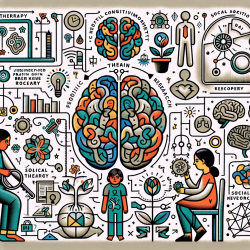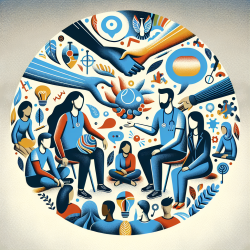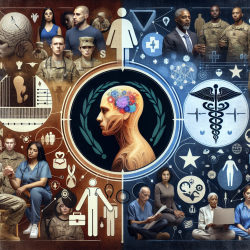Revolutionizing Therapy with Insights from Pediatric Brain Injury Research
As a practitioner in the field of special education, understanding the intricate workings of the brain can significantly enhance your ability to support children with traumatic brain injuries (TBI). The recent study titled Uncovering the neuroanatomical correlates of cognitive, affective and conative theory of mind in paediatric traumatic brain injury: a neural systems perspective offers groundbreaking insights into how brain structure influences social cognition, specifically Theory of Mind (ToM), in children with TBI.
Understanding Theory of Mind and Its Importance
Theory of Mind is a crucial cognitive skill that allows individuals to attribute mental states to others, enabling them to predict and understand behaviors. This skill is essential for effective social interactions and emotional intelligence. The study explores the impact of TBI on ToM, focusing on three dimensions: cognitive, affective, and conative ToM.
Key Findings from the Study
The research highlights significant findings that can aid practitioners in tailoring their therapeutic approaches:
- Cognitive ToM: The study found that cognitive ToM is linked to the Cerebro-Cerebellar Mentalizing Network (CCMN), with reductions in cerebellar volume predicting poorer outcomes. This suggests that interventions targeting cerebellar function could enhance cognitive ToM skills.
- Affective ToM: Affective ToM, which involves understanding emotions, is associated with the Salience Network (SN). Practitioners can focus on activities that enhance emotional recognition and processing to strengthen this network.
- Conative ToM: Conative ToM, related to understanding indirect speech and intentions, is linked to the Mirror Neuron/Empathy Network (MNEN). This finding emphasizes the importance of empathy-building exercises in therapy.
Implementing Research Outcomes in Therapy
To integrate these findings into your practice, consider the following strategies:
- Neurofeedback and Brain Training: Utilize neurofeedback techniques to target specific brain networks, enhancing their function and supporting ToM development.
- Emotion Recognition Exercises: Incorporate activities that improve facial emotion recognition, helping children better understand and respond to social cues.
- Role-Playing and Social Stories: Use role-playing scenarios and social stories to practice empathy and understanding of others' perspectives.
Encouraging Further Research
This study opens the door to numerous research opportunities. Practitioners are encouraged to explore further how different therapeutic interventions can influence the neural systems involved in ToM. Collaborating with researchers can provide valuable insights and improve therapeutic outcomes for children with TBI.
To read the original research paper, please follow this link: Uncovering the neuroanatomical correlates of cognitive, affective and conative theory of mind in paediatric traumatic brain injury: a neural systems perspective.










